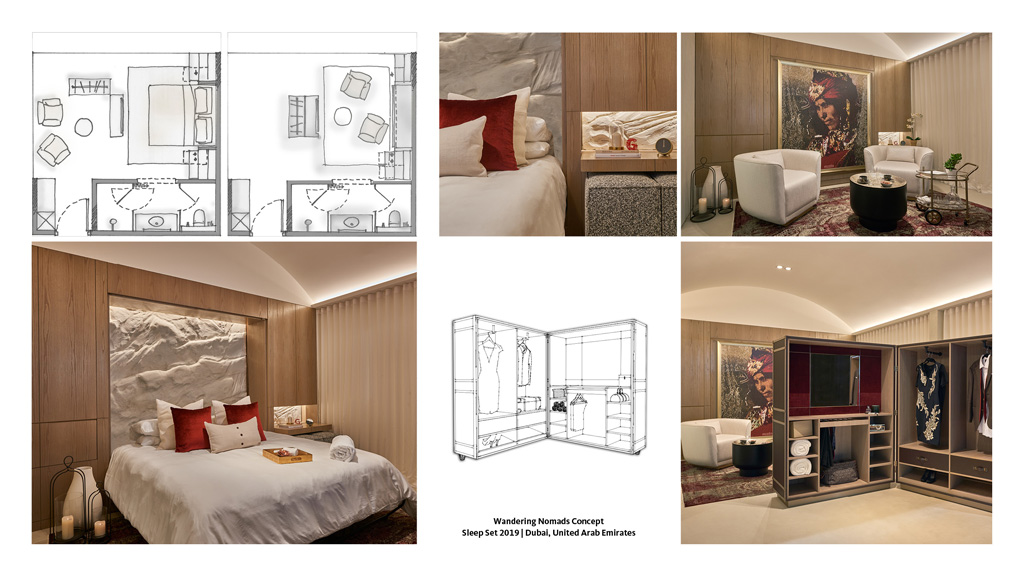What Matters Most for Hospitality in Asia Pacific and the Middle East?
May 29, 2020 | By Diane Thorsen, Julijana Mitic, and Angela Spathonis
Editor's note: This post is part of our ongoing exploration of how design is responding to the COVID-19 pandemic. A version of this article was originally published by Hotelier Middle East.
Our hospitality and leisure clients constantly face challenges, but the entire industry is reeling from the unprecedented impact of COVID-19. In the attempt to contain the spread of the virus, our region in Asia Pacific and Middle East reacted swiftly. Flights were suspended, events and tours postponed; including the Dubai Expo 2020 in the UAE. However, as seen in the previous financial crisis, the most agile thinkers rise and this industry is showing their true hospitality commitments, making hotels available for hospital beds and hospital employees. This is true hospitality — it’s simply enhancing the interaction from pure service to an unforgettable human gesture.
Is this an opportunity to re-invest, reinvent, or repurpose?These are difficult times, but travel will resume. We also recognize that great hotels not only anticipate market changes, they are also able to react quickly to unusual situations. Given this unprecedented crisis and downturn in occupancy, we believe we can shape the future of hospitality by partnering with owners and operators considering the following:
1. Re-invest in existing properties
“Given the uncertainty of the current situation, one of the smartest investments in hospitality right now is to re-invest in existing properties," says Seth Matson, vice president of design and technical services at Luxury MEA. "Hotels in key urban and resort locations will be the first to recover, owners who can move quickly can take advantage of the current closures and low occupancies to be ready to compete effectively in the new market that will emerge as the crisis subsides, one in which business travel is radically refined, and wellness and environmental safety are paramount guest concerns.”
Peter Wilmot of Currie and Brown notes, “The importance of effective project management is paramount in refurbishment projects, as the practical implementation of the design and the optimization of the approach to achieve the design principles are more critical in early design phases than new build projects. This effective partnership will ensure design, cost and delivery are interdependent and considered at every step of the service.”
RefurbishMany owners have elected to refurbish their properties during this downturn with a focus on healthier materials and leveraging technology to reduce contact. When designing and specifying, we focus on fabrics, simple clean line furniture, loose rugs, touchless fixtures and smart amenities in the guest rooms. Excellent air filtration systems that are well maintained and ensuring that guests are informed of the housekeeping protocols, including the use of UV lights and cleaning materials approved for hotels, will ensure a high level of trust between the hotelier and guest.
Balancing Personable Interaction and TechnologyFor many years, hoteliers have used technology to create guest profiles to better recognize new and repeat guests. This crisis presents additional opportunities for technology to be applied to ensure that guests feel safe.
At the Urban Land Institute's annual conference in Singapore, Tan Shin Hui, the executive director of Park Hotel group, and Harpreet Bedi, chief exectuive and legal counsel for Garcha Group, brought up several interesting points.
Technology will continue to play an evolving role in the hospitality landscape, even more so in a post COVID-19 world. We have seen the emergence of contactless service over the last four to five years including contactless check-in/checkout, service apps, and room door entry. Where robots were a gimmick historically, they have been trialed and proven to be successful for offering contactless service such as room service during the current pandemic. The guest’s mindset will continue to adapt to the integration of technology in the overall brand experience. In luxury brands, the experience of high end, customized service and touchpoints for the guest are key to the brand standards. Balancing the integration of technology whilst maintaining the human interaction and expectation of the customer will be key.
2. Reinvent the experience
“We are focusing on our long-term goal and our brand, and we recognize the need to reinvent our offering," one hotel operator explained. "Hospitality will remain a combination of services offered but this presents an opportunity to reinvent the experience."
Support LocalWe believe that as the market opens, the expats across the region will choose to travel locally at first sharing experiences through social media. This experience has evoked a great sense of gratitude and a willingness to support the local community. Designers will continue to embed the local culture and craft to sensitively reflect the ethos and sense of place. Local materials and innovative experiential offerings will continue to create interest for the hospitality industry. Farm to table and support of local farms will shape the food and beverage offering with organic produce and healthy offerings taking precedence.
Cultural tourismThe new social distancing norms will impact any spaces where large gatherings may occur. Hoteliers will look to manage their offerings to begin with, so that the experience is within a smaller more exclusive group. What is important is that we reinvent ways to manage this to retain interest in cultural tourism. This will ensure support of the UAE Louvre Abu Dhabi, and the planned openings of Zayed National Museum and the Guggenheim Abu Dhabi in Saadiyat Cultural District. The Kingdom of Saudi Arabia hosts the yearly Haj which was cancelled in 2020 but hoteliers see this as an opportunity to re-invest and refurbish.
3. Repurpose spaces and buildings
According to the construction and real estate consultants at Drees and Sommer, now is the time to "assess and validate your hotel’s current business model and operating concept and assess the possible re-use or repurposing options within the property including alternative rental and lease models for specific spaces."
In addition to assessing spaces within an existing property, we know that the experience of being isolated during the pandemic will encourage guests to seek out increasingly novel hotel experiences when travel resumes. As designers how can we not only create flexible spaces within hotels but also look at repurposing and adapting existing buildings to create unique experiences?
In the pursuit of sustainable development, communities have much to gain from this approach. An unused or historic building, while lending character, may also serve a purpose in our modern communities. In many ways, an adaptive-reuse project can invigorate our communities by responding innovatively. As designers, we are looking at creative ways to adapt large retail spaces or warehouses that are now vacant. Any unused architectural form can be repurposed for an extraordinary guest experience.
The hospitality industry, being one of the most human-intensive industries, has an opportunity to reinvent itself with the aim of focusing on what matters most — connecting people with place in the most sustainable way, with human interaction at the core.
For any media inquiries, please contact Sandra Tan at .

